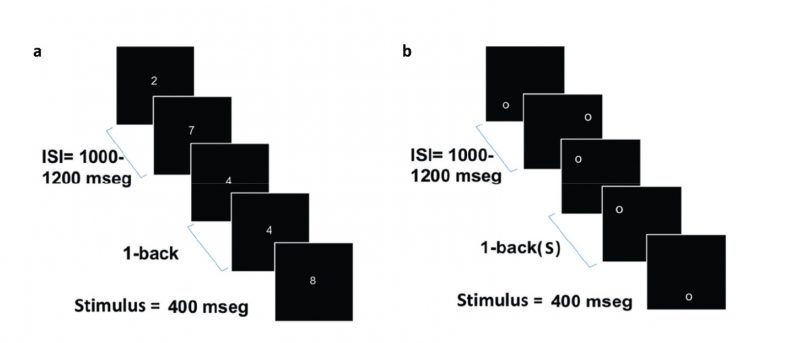14 de julio 2020
Abstract:
The aim of this research was to assess cognitive-motor interactions though dual tasks of working memory in patients with traumatic brain injury (TBI) and control subjects. Methods: Twenty patients with chronic TBI with good functional level and 19 matched healthy controls performed dual working memory tasks (1-back numeric and 1-back spatial (S)) while sitting, standing, and walking. The center of pressure (COP) displacement amplitude, cadence, and error percentage (PER) were recorded as dependent variables. Results: The results revealed main effects of Group (TBI, controls) (p = .011) and Task factors (Single, Dual Standing 1-back, Dual Standing 1-back (S); p = .0001) for the COP. Patients showed greater displacement than controls (p = .011), and an analysis of the Task factor showed a minor displacement for the dual 1-back (S) task compared with the 1-back and single task (p = .002 and p = .001, respectively). Conclusions: Postural control during both standing and walking improved during performance of the spatial working memory task. In the dual task, both patients and controls showed a postural prioritization as an adaptive response to the increase in cognitive demand.


